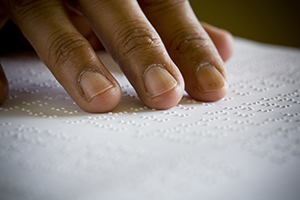Latest News Archive
Please select Category, Year, and then Month to display items
14 June 2024
|
Story Anthony Mthembu
|
Photo Suplied
 Jeremiah Hlahla, a UFS student completing his PhD in Botany at the University of Debrecen as part of an exchange initiative funded by the Erasmus+ Mobility Programme.
Jeremiah Hlahla, a UFS student completing his PhD in Botany at the University of Debrecen as part of an exchange initiative funded by the Erasmus+ Mobility Programme.
As part of an exchange initiative facilitated by the Erasmus+ Mobility Programme, Jeremiah Hlahla, a student at the University of the Free State (UFS), is nearing the completion of his PhD studies at the University of Debrecen in Hungary. Hlahla’s journey, which began in February 2024 and is set to conclude in July 2024, has been a remarkable learning opportunity. “As a first time-traveller to Europe, I have thoroughly enjoyed engaging with people from different countries and cultures,” he said.
The benefits of international collaboration
Hlahla is currently pursuing a PhD in Botany, focusing on plant stress physiology. “My current PhD project investigates the physiological, biochemical and morphological responses of vegetable-type soybean, or edamame, to combined drought and heat stress,’’ he explained. He considers the University of Debrecen the ideal institution to complete his research due to its extensive expertise and resources in similar projects. He noted that his colleagues at Debrecen conduct significant work on plant protection against biotic and abiotic stresses, including salt and drought stress, as well as proteins and amino acids in barley and other legumes.
Given the vast knowledge available on similar projects, Hlahla has found substantial engagement with his work at the University of Debrecen. “Upon arrival, I delivered an introductory lecture presenting my UFS project on the synergistic effects of combined drought and heat stress on the physiology and biochemistry of edamame. It was an engaging session as everyone could relate to my work and asked many questions,’’ he said.
Insights gained from the exchange
Hlahla has also gained valuable lessons that will assist him in his research career, including biotechnology and physiology tools. “I learned how to prepare samples and use high-performance liquid chromatography (HPLC) and reversed-phase ultra-high-performance liquid chromatography (UHPLC) to quantify proteins and amino acids,’’ he said. These techniques are beneficial not only for his current work but will also support future soybean research.
As his experience at the University of Debrecen nears its end, Hlahla reflects on the collaborations and friendships he has formed, which stand out as a significant highlight.
First Rand Foundation contributes funding towards students with disabilities
2017-01-02

Photo: iStock
Bursary funding for eight students with disabilities at the University of the Free State was recently approved by the First Rand Foundation. The grant of R2 497 440 will be paid over three years: R800 000 (2016/17), R824 000 (2017/18), and R873 440 (2018/19).
This grant from the First Rand Tertiary Education Fund is a result of the negotiations between the UFS Office for Institutional Advancement and the First Rand Foundation (FRF).
Qualifying students with disabilities will be encouraged to apply for bursaries according to criteria and requirements set by the First Rand Foundation. The selection process will be handled by a panel from the UFS. The Centre for Universal Access and Disability Support (CUADS) at the UFS will be instrumental in the process of identifying students with disabilities who meet the criteria and requirements for funding.
CUADS already have a system in place to support students with disabilities in their studies and during exams. Students also have access to specialised exam and test venues for alternative test and exam procedures, as well as computer facilities.
Specialised support services include an amanuensis (scribe) service during tests and exams, accommodating extra time, individual tutor sessions provided in collaboration with the Centre for Teaching and Learning, South African Sign Language interpreter coordination, provision of accessible study material, and individual disability support.
“The centre aims to ensure that the university increasingly becomes a universally accessible environment that is welcoming and accepting to people with diverse abilities.”
According to Martie Miranda, Head of CUADS, the centre aims to ensure that the university increasingly becomes a universally accessible environment that is welcoming and accepting to people with diverse abilities. “Therefore disability awareness training and advocacy within the UFS, and specifically among staff members, is one of our priorities,” she said.
According to Thandeka Rantsi from the FRF, the company will furthermore support students in CUADS with regards to the needs ensuing from the #feesmustfall protests. “Exactly R34 000 was approved by the FRF for 14 students towards residence and meal expenses, as well as scribe and reader assistance during additional assessments,” she said.